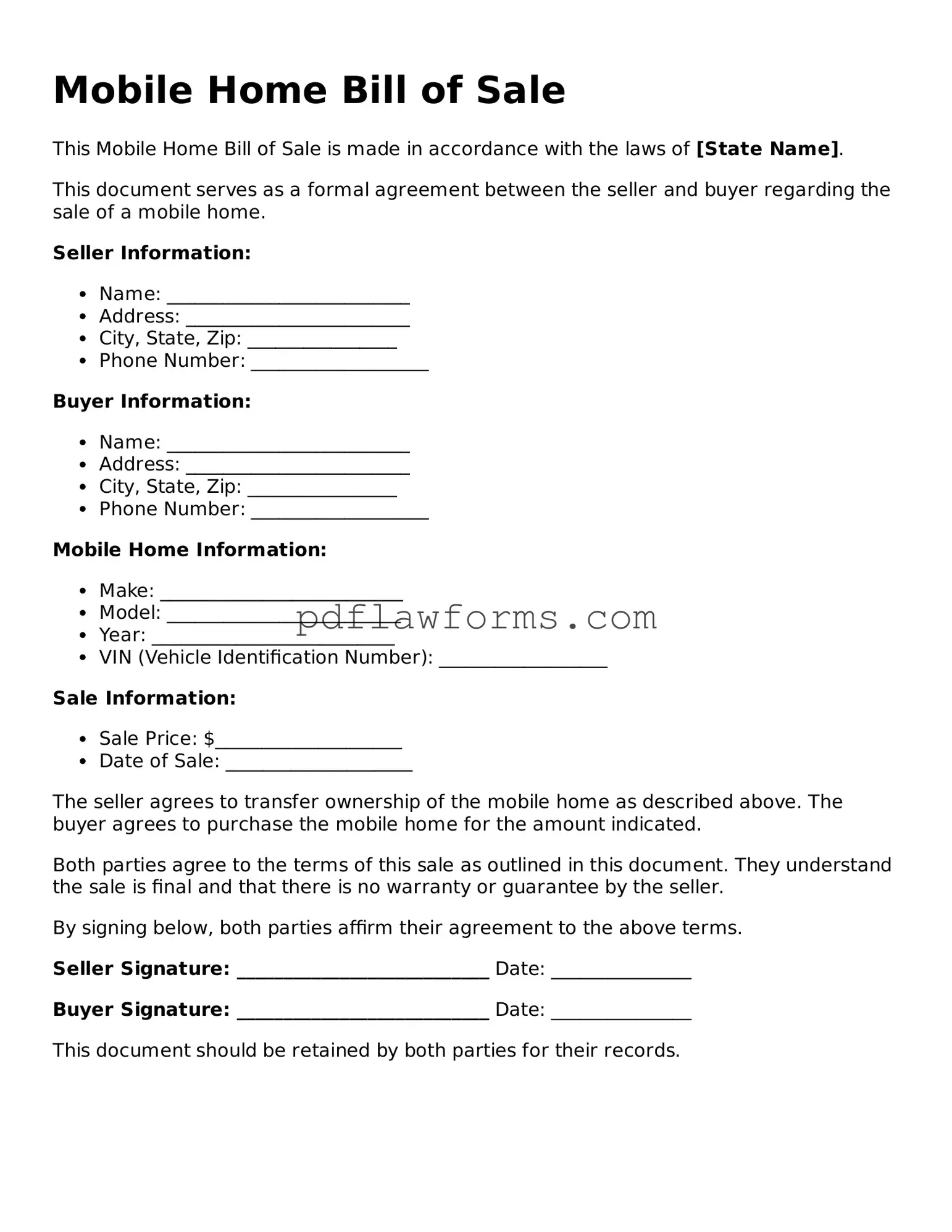Official Mobile Home Bill of Sale Form
A Mobile Home Bill of Sale is a legal document that outlines the transfer of ownership of a mobile home from one party to another. This form serves as proof of the sale and includes essential details such as the buyer's and seller's information, the mobile home's specifications, and the sale price. To ensure a smooth transaction, it's crucial to fill out this form accurately.
Take the next step in your mobile home sale by filling out the form below.
Make My Document Online

Official Mobile Home Bill of Sale Form
Make My Document Online
You’re halfway through — finish the form
Edit and complete Mobile Home Bill of Sale online, then download your file.
Make My Document Online
or
⇩ Mobile Home Bill of Sale PDF
